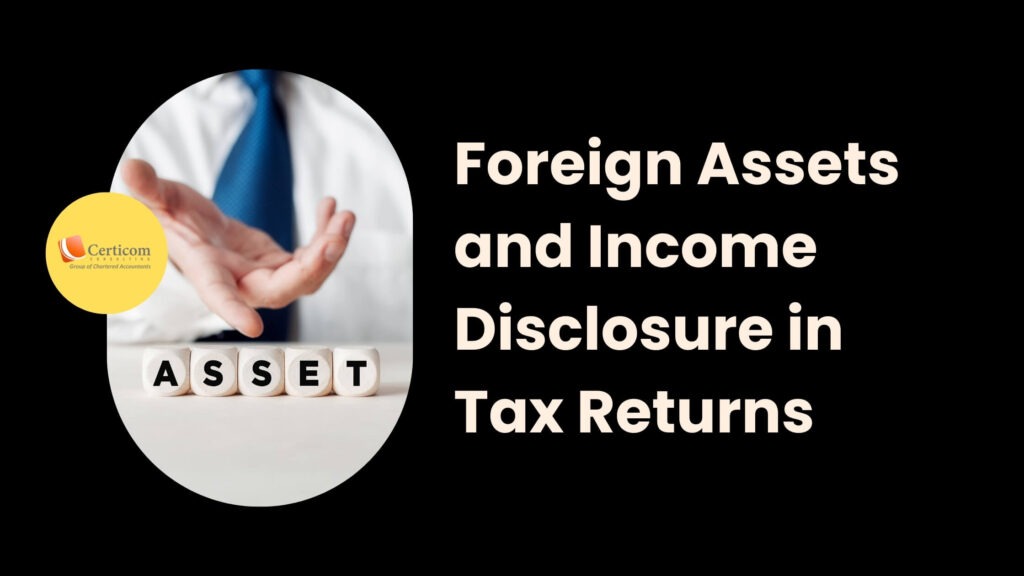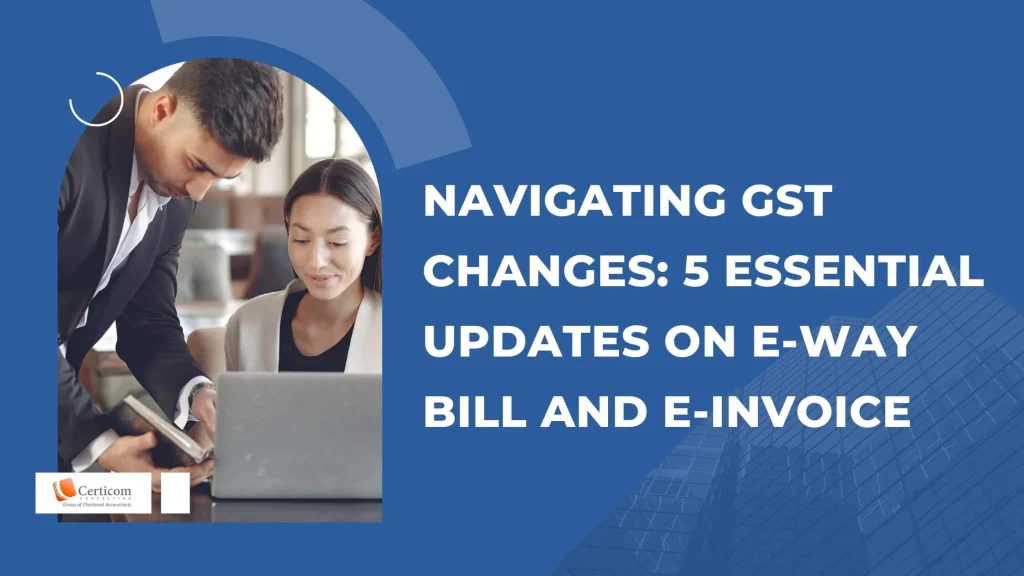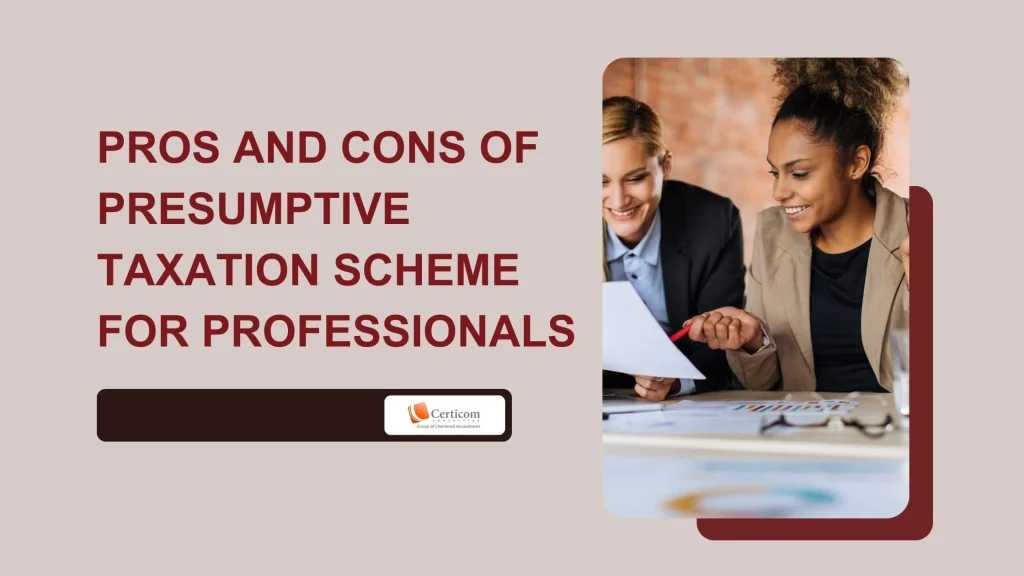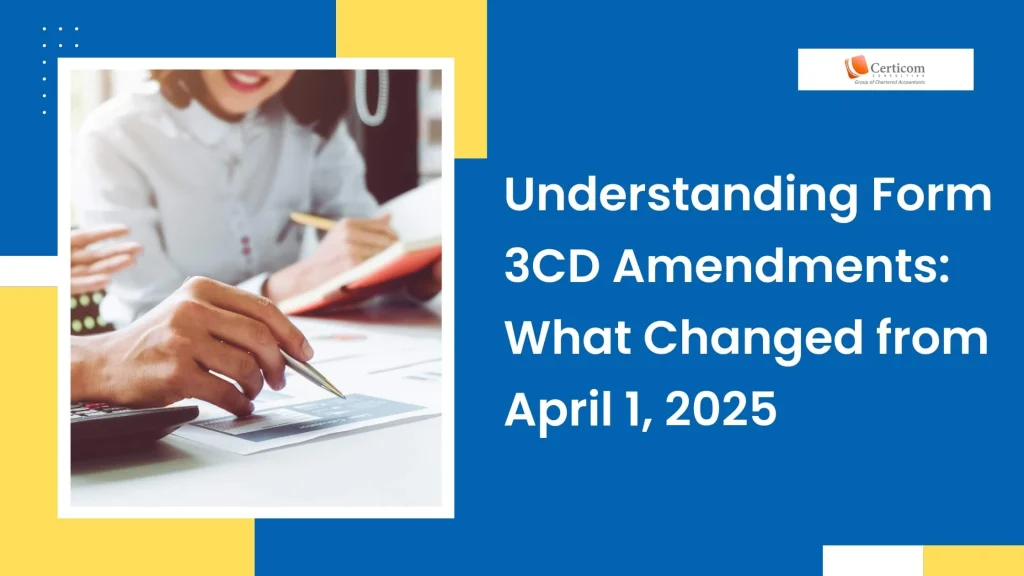Foreign Assets and Income Disclosure in Income Tax Returns

When filing income tax returns, many taxpayers overlook the critical “Schedule FA,” which mandates the disclosure of foreign assets and income. This schedule requires detailed information about foreign bank accounts, equity or debt interests, financial interests, signatory authorities, capital assets, trusts, and any other income derived from foreign sources. Understanding who must report these foreign assets and the consequences of non-compliance is essential for accurate and complete tax filings.
Who Must Report Foreign Assets/Income?
Schedule FA Filing Requirement:
- All Residents
- Individuals and Hindu Undivided Families (HUF) who are Residents & Ordinarily Residents (R&OR)

- As per the Fourth Proviso to Section 139(1):
- Residents holding overseas assets as beneficial owners or signatory authorities on foreign accounts.
- Beneficiaries of assets located outside India.
As per the Fifth Proviso to Section 139(1):
- The mandatory ITR filing requirement does not apply to individuals who are beneficiaries of foreign assets (including any financial interest in any entity) if the income from such assets is included in the income of the beneficial or legal owner.
Key Points of Consideration
- Non-Resident Indians (NRI) and Residents who are not ordinarily resident (RNOR) are exempt from reporting.
- All specified details of foreign assets and income must be disclosed in Schedule FA, along with references to the relevant schedule in the ITR where such taxable income is declared.
- Details of foreign assets must be furnished on a calendar year basis (as most countries follow the calendar year, unlike India, which follows the financial year).
- For the ongoing ITR filings for AY 2024-25, details from January 2023 to December 2023 need to be disclosed.
- Corresponding disclosure in Schedule AL (Asset Liability, applicable where total income exceeds ₹50 lakh) is mandatory even if such assets are disclosed in Schedule FA.
- Assets in the name of minor children must also be disclosed, and the relevant income should be clubbed with the parents’ income.
Cost of Non-Compliance
- Under the Black Money (Undisclosed Foreign Income and Assets) and Imposition of Tax Act, 2015, a penalty is imposed on residents failing to furnish or furnishing inaccurate particulars of foreign assets or income in their tax returns. The penalty is ₹10 lakh, with an exception for foreign bank accounts whose balance was less than ₹5 lakh during the year. The CBDT clarified in a 2015 circular that non-disclosure of a foreign asset acquired from disclosed income would attract this penalty.

- Revocation of DTAA Claim: Failure to declare foreign assets revokes the right to claim Double Taxation Avoidance Agreement (DTAA) benefits, which can be claimed in three ways:
- Deduction: Taxpayers can claim taxes paid to a foreign government as a deduction in the country of residence.
- Exemption: Tax relief can be claimed in one of the two countries.
- Tax Credits: Tax relief can be claimed in the country of residence.
Disclosing foreign assets and income in the income tax return is a crucial requirement for residents and ordinarily residents of India. Failure to report these assets accurately can result in significant penalties under the Black Money Act and the loss of the right to claim DTAA benefits. By understanding the requirements and ensuring thorough compliance, taxpayers can avoid the pitfalls of non-disclosure and ensure their tax obligations are fully met. Proper reporting not only aligns with legal mandates but also contributes to a transparent and fair taxation system.
Related Post
Pros and Cons of Presumptive Taxation Scheme for Professionals
Understanding Form 3CD Amendments: What Changed from April 1, 2025
Book A One To One Consultation Now For FREE
How can we help? *




